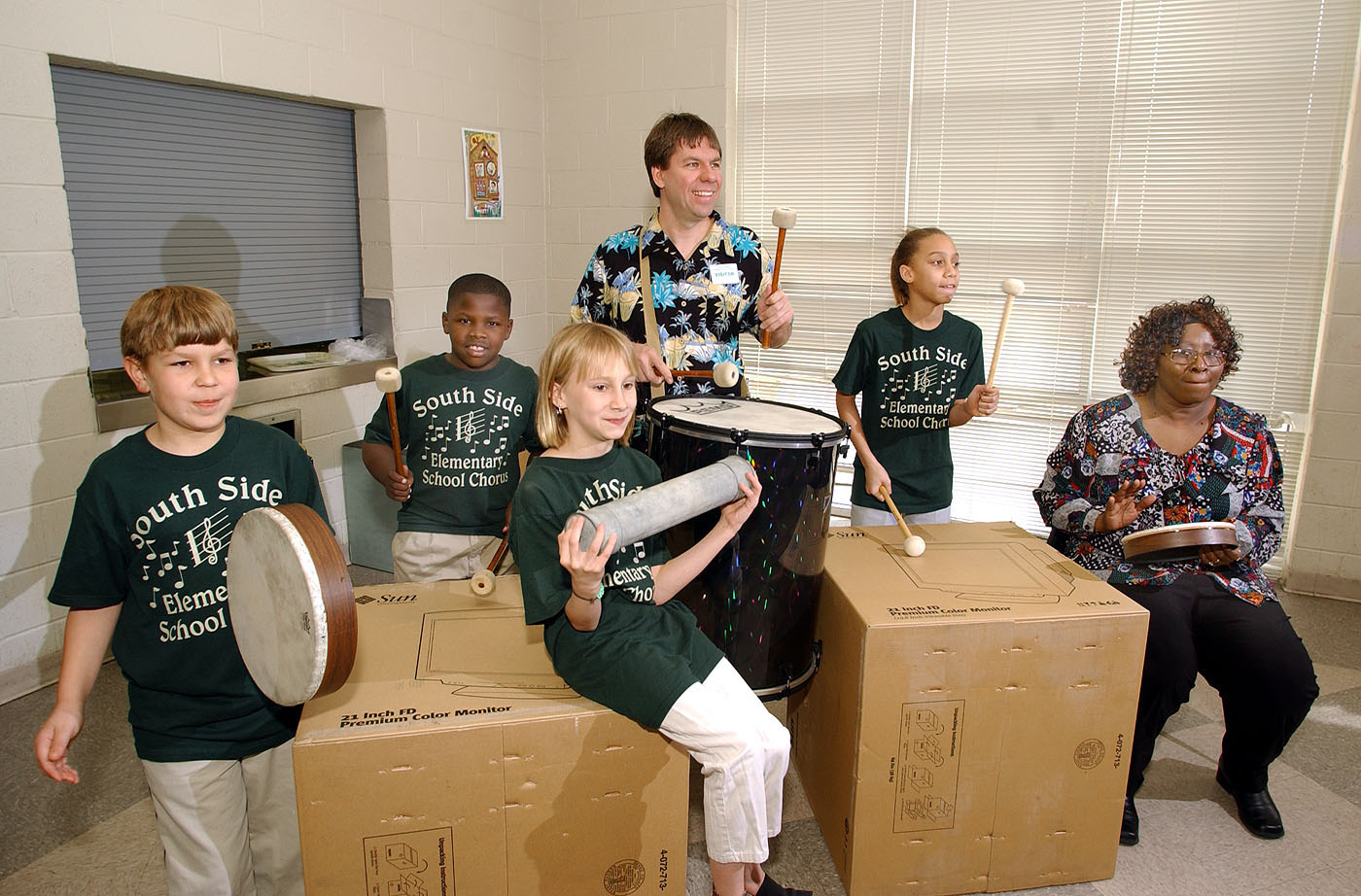Contact: Maridith Geuder

Members of West Point's South Side Elementary School Chorus rehearsed recently with Mississippi State music education professor Robert Damm (center). The 80-plus-member chorus under the direction of music teacher Tavetia Hughes (r) will perform April 9 with MSU's Percussion Ensemble. Students practicing for the 6 p.m. performance at MSU's amphitheater are (l-r) Cody Collins, Xavier Hogan, Meagan Gwathney, and Brianna Wofford.
STARKVILLE, Miss.--Some grade-school students he visits may consider Mississippi State University professor Robert Damm the king of shake, rattle and roll.
An associate professor of music education, Damm has a specialty in African and Latin American percussion instruments--and a passion for sharing his knowledge. As part of the university's Bettersworth Lecture Series, he regularly visits schools in locations ranging from Gulfport to Philadelphia to Coahoma to West Point.
Director of MSU's Percussion Ensemble, he also occasionally invites students to participate in concerts at Mississippi State. That will be the case April 9 when West Point's South Side Elementary School Chorus joins Damm and MSU's Percussion Ensemble for a "Percussion Extravaganza."
The 80-plus third- and fourth-graders under the direction of South Side music teacher Tavetia Hughes will sing Latin musical numbers and play percussion instruments with the MSU ensemble. The 6 p.m. concert at MSU's amphitheater is free and open to the public.
Such a collaboration is all part of the learning process, Damm believes. "I like to provide an environment for discovery," he said. With a gallery of more than 60 percussion instruments, he has plenty of hands-on selection.
From West Africa, he may choose drums, rattles or bells. He also selects instruments from Native American and Latin American cultures. A vibraslap, for instance, is designed to imitate the sound of a donkey jawbone.
"Musical instruments provide an excellent way to introduce history and culture that students might not otherwise experience," he explained.
For a local Starkville school, Damm provided music for a Native American day. For a science class at another school, he talked about resonance, sound waves and the physics of sound as he demonstrated a variety of instruments.
A former public school teacher, he said he tries to tie his presentations to units being taught in class. The response from both students and teachers typically is enthusiastic, he said.
"Students learn about music, but they also learn about themselves through music," he said. "They become performers, conductors and composers."
One of Damm's messages is that musical expression requires no special instruments. He also shows students that everyday "found" objects such as salad bowls, spoons and plates can create musical expression.
A new fund established in the MSU Foundation is allowing Damm to continue his outreach efforts to students around Mississippi. The Holland Music for All Fund, established by Melissa Holland of Arlington, Va., and Barbara Holland Criswell of Columbus in memory of their parents, now is being expanded to specifically include outreach efforts in the Department of Music Education. The fund honors R.B. Holland, an MSU English professor who died in 1969, and his wife Pepper, who died in 2000.
Half of Holland Music Fund for All supports the department's annual Piano Showcase, with the remainder supporting dispersion of music in the public schools, said Melissa Holland.
"My father sought to democratize the arts and literature in his actions and words," she noted. "I see that spirit alive in Robert Damm's work."